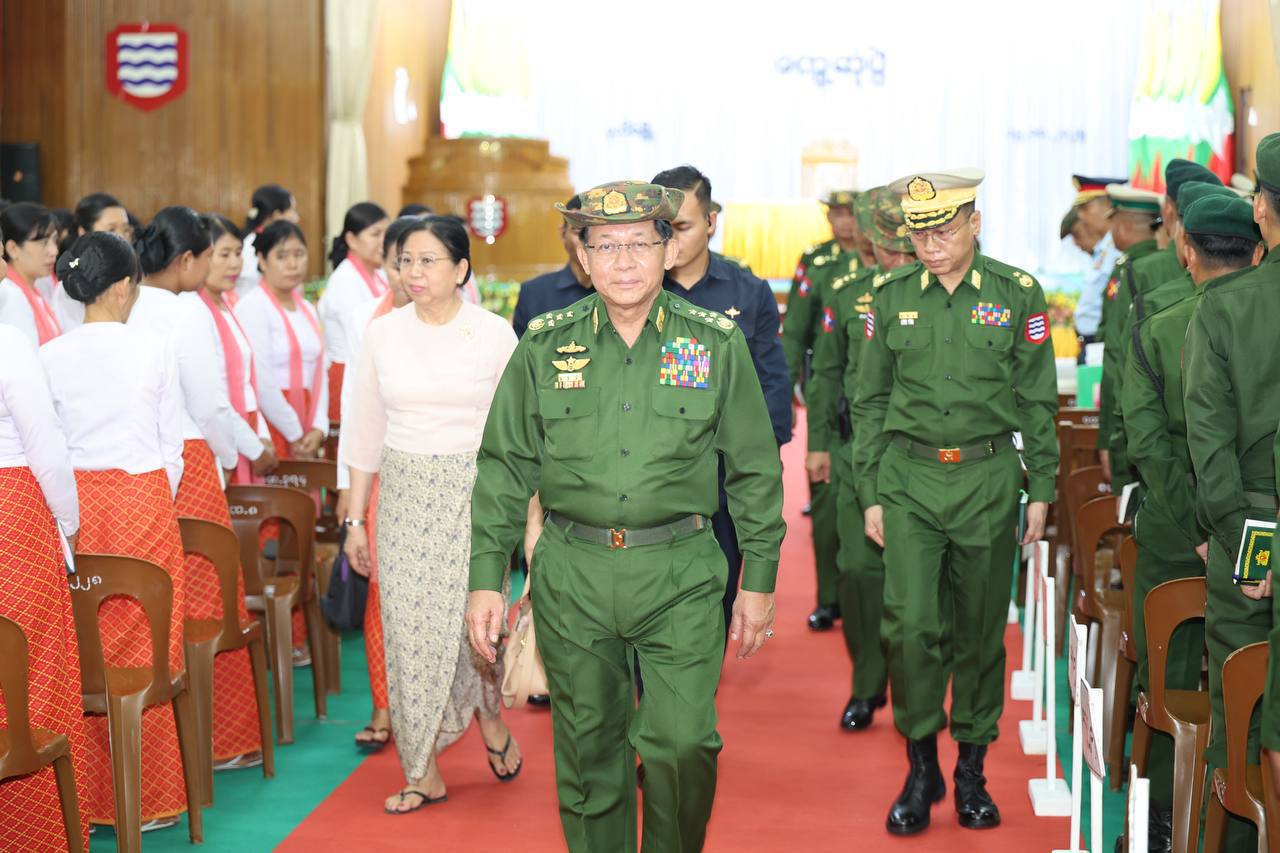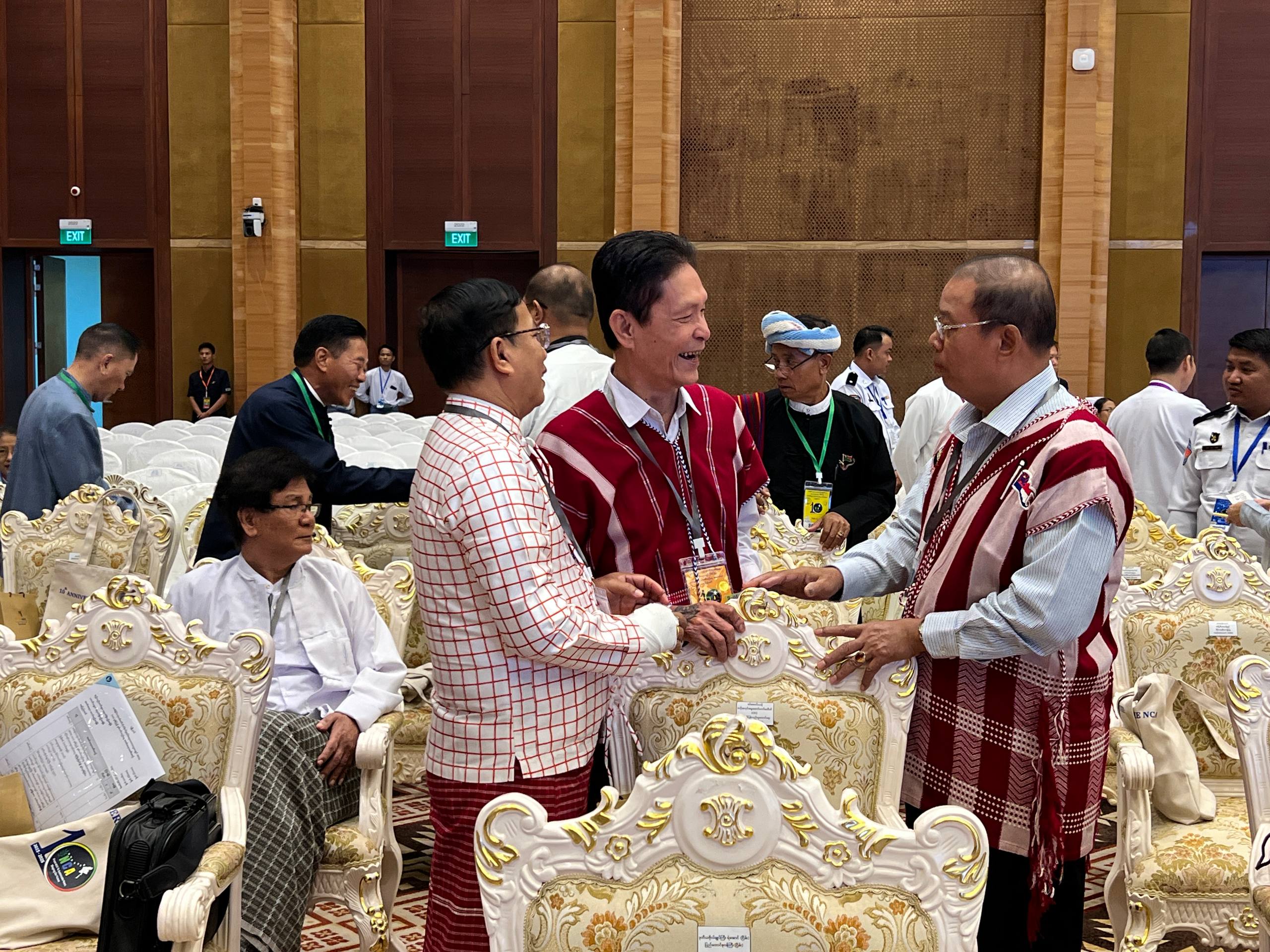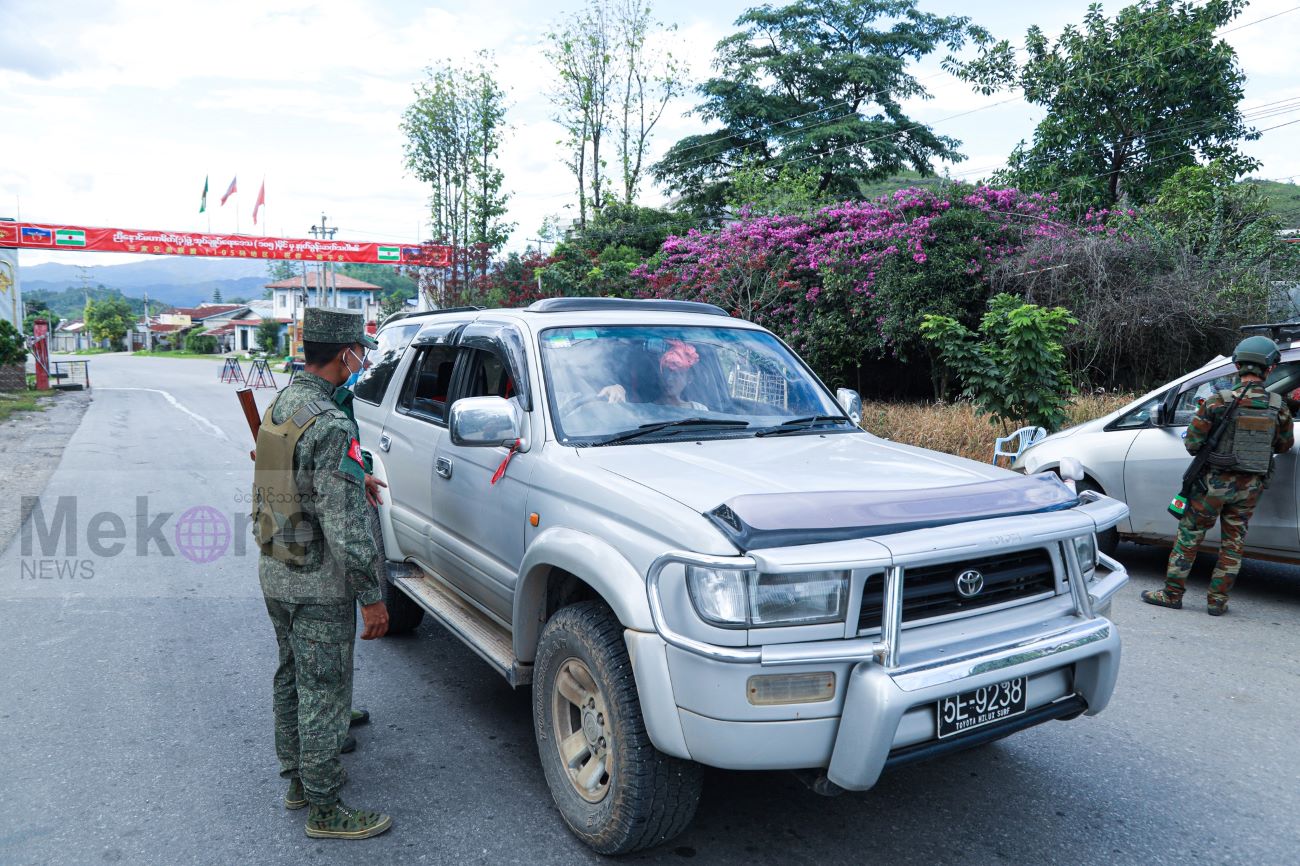CNI News
29 October 2025
Observers point out that due to the ongoing armed conflicts in Myanmar, it is difficult for foreign investment to enter the country and for the public to conduct trade and business.
Senior General Min Aung Hlaing, Chairman of the State Security and Peace Commission, stated on October 19, 2025, that economic activities cannot be carried out if stability is disrupted by armed violence. Therefore, he stressed the imperative need to curb armed violence and work towards regional stability and peace.
Colonel Saw Kyaw Nyunt, spokesperson for the 7 EAO Alliance, told CNI News Agency that it is difficult to conduct business without stability and peace in a region.

Senior General Min Aung Hlaing
He said: “International experts talk about Myanmar’s economic situation from various perspectives. Based on the objective situation on the ground, armed conflicts are occurring. They are still ongoing, and this is the time when the armed conflict is historically the most widespread and severe. Whether within the country or among our public, the economy is quite tight, to be frank. It is extremely difficult for a business to survive without regional stability and peace. Whether we look at international experience or our country’s own journey, everyone already knows that it is very difficult to achieve development and conduct business without stability and peace in a region.”
Currently, intense battles are raging across Myanmar, both between the Myanmar Armed Forces (Tatmadaw) and ethnic armed groups, and among the armed groups themselves.
Similarly, as both sides are accelerating recruitment, young people are fleeing abroad, and Myanmar is losing human resources as others are forced to enter the fighting.
Colonel Saw Kyaw Nyunt, spokesperson for the 7 EAO Alliance, told CNI News Agency that while attempting to bring the civil war in Myanmar to a complete end, the people have found themselves in a life of tears amidst this large-scale and widespread armed conflict.

Colonel Saw Kyaw Nyunt and other armed group leaders are seen
He continued: "In the current political landscape of our country, there is a lot of finger-pointing and blaming one another. Armed conflict is widespread in our country—a civil war. We have made attempts to bring it to a complete end, but while striving, the people are now living lives full of tears amidst this unprecedented, massive, and widespread armed conflict. They are still facing it now. There are various views on these armed conflicts. This is an undeniable, objective reality."
The armed conflict in Myanmar has lasted for over 70 years, from 1948 until today.
Due to these armed conflicts, the lack of regional stability and peace, reduced rule of law, high electricity demand, insecure trade and travel routes, and internal displacement have made conducting business increasingly difficult.
Senior General Min Aung Hlaing noted that Myanmar's production sector has been weak, leading to the excessive exploitation of natural resources. Therefore, he stated that Tatmadaw personnel, in their respective areas of duty, need to cooperate and assist the public in increasing production based on the foundational sectors of agriculture and livestock.




